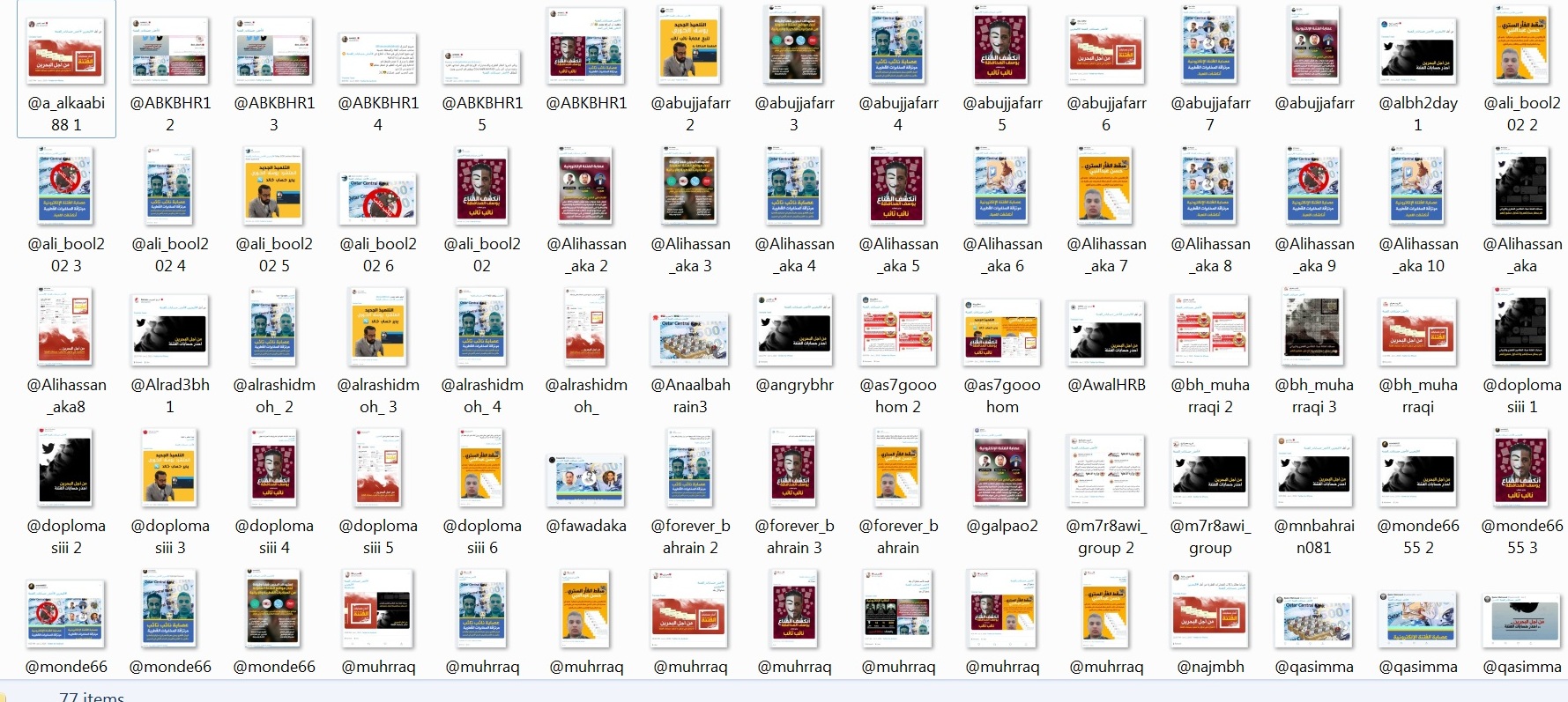
Bahrain Forum for Human Rights: 1,102 hate-inciting media materials and messages were detected in May in Bahrain
The Bahrain Forum for Human Rights (BFHR) monitored 1,102 media materials and messages that incite or help to incite hatred against human rights defenders, political activists, Bahraini citizens, and human rights and media organizations in May 2019. The materials were distributed as follows: 166 media materials in the official press and 936 materials on social media outlets. The following journalists continued to disseminate hate materials: Faisal al-Sheikh, Farid Hassan, Mona Mutawa, Saeed al-Hamad, Sawsan al-Shaer, Fawzia al-Rasheed, Abdel-Moneim Ibrahim and Usama al-Majid. The hate-inciting media materials were distributed in the official press as follows: 44 materials in Bahrain's al-Ayam newspaper, 40 materials in Bahrain's Akhbar al-Khaleej newspaper, 34 materials in Bahrain’s al-Bilad newspaper and 48 materials in Bahrain’s al-Watan newspaper. Electronic hate materials were monitored through following 500 electronic accounts, 80% of them post from Bahrain, while 20% from Saudi Arabia, the UAE and other countries. The hate-speech campaign against vice president of SALAM for Democracy and Human Rights, Yousef al-Muhafdah, and political activist Hassan al-Sitri began after the statement issued by the Director-General of the General Directorate of Anti-Corruption and Economic and Electronic Security on May 19. In the statement, malicious charges were fabricated against them, including managing the account of “Naeb Taeb.” It was noticeable that the statement that defames the names of the activists did not mention the name of the Director-General of the Cyber Crime Directorate (al-Miraj) and only mentioned his title. This behavior has recently been adopted by some official bodies, such as not mentioning the names of some judges in prominent political trials, in order to avoid media and human rights activities that combat impunity apparently. The total number of materials monitored after the Cyber Crime Directorate's statement was 524 hate materials that extended until the beginning of June. They were distributed as follows: 350 posts on Instagram under the hashtag “beware of sedition accounts,” 86 comments on Instagram including video materials, 80 tweets on Twitter, and 8 materials in the three newspapers al-Watan, al-Bilad and al-Ayam, 5 of which in al-Watan newspaper, 2 articles of them by Mona Mutawa, 1 by Farid Hassan, 1 by Ali Shaheen and 1 by Saad Rashed. On May 30 and June 1, the Cyber Crime Directorate published several tweets inciting against activists' accounts, and then the hashtag “beware of sedition accounts” was used at the same time with the same media materials inciting hatred against al-Muhafdah, al-Sitri and opposition activists and media outlets by “dead” accounts that are activated when statements or stances are issued by the Bahraini Interior Ministry. After the end of the campaign in June, a statement was issued by the Cyber Crime Directorate thanking those who tweeted in this campaign, which raises questions about the association of these accounts with the Directorate. In addition, 12 hate-inciting articles by journalist Faisal al-Sheikh were monitored. The vocabulary he uses to incite hatred against human rights defenders and dissidents include: putschists, spies, traitors, fifth column, etc. However, the strange thing is his justification for the continued dissemination of hate words against human rights organizations and the opposition, which insist on peaceful action and the rejection of violence. In an article entitled "Iranian shoes" made in Bahrain?! he said that they are the same as the terrorist organizations that are established to incite terrorism and advocate violence, such as al-Qaeda and ISIS. While the Rabat Plan of Action, which was adopted by the UN in October 2012, recommends that states raise the capacity to train security forces, law enforcement officials and members of the judiciary and raise their awareness on issues related to the prohibition of incitement to hatred, we still receive information on the prevalence of hate culture within the security services and on using offensive sectarian expressions and insulting the religious beliefs of detainees, especially while torturing them.
|